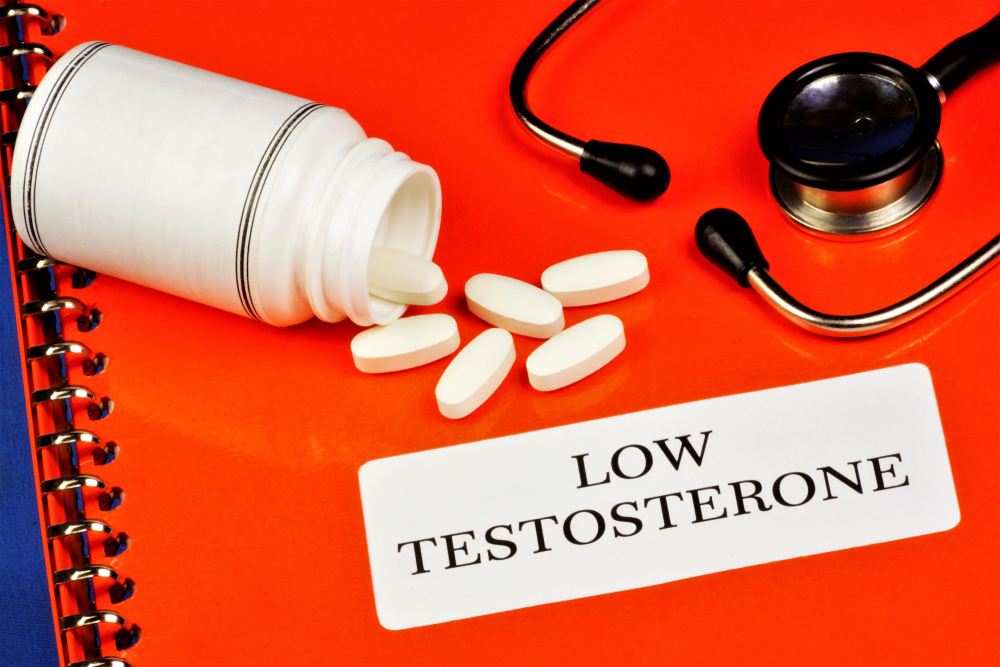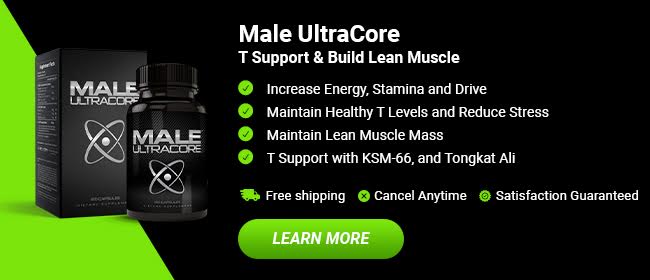Low testosterone manifests itself in a wide spectrum of physical, emotional, and mental symptoms.
In fact, low testosterone often comes hand in hand with anxiety, stress, and depression.
That’s the reason why testosterone is thought to play an essential role in regulating our mental health. Often, men diagnosed with low testosterone concentrations experience disruptive mood swings that may affect their personal relationships in daily life.
The good news is that the evidence is encouraging as far as the potential of treating low T to reduce such symptoms is concerned—and help you restore the vim, vigor, and vitality you knew you always had.
The pervasiveness of depression
According to the National Institutes of Health, over 16 million Americans have encountered depression one way or another.
Depression, according to the World Health Organization, is among the primary culprits in causing ill health and disability globally. The thing is, around 30% of individuals with depression do not experience alleviation of symptoms over a period of time, despite trying several treatments and combinations thereof.
It is for this reason scientists have begun examining the possibilities of treating low testosterone levels for depression, with varying degrees of success.
The importance of testosterone
 Testosterone is often thought of as the so-called “male” sexual hormone that is the primary determinant of a man’s physical, sexual, and cognitive characteristics. It wouldn’t be surprising to find out that for some men, the first thing that comes to mind when they hear “low T” is a low sex drive or physical manifestations like erectile dysfunction or ED.
Testosterone is often thought of as the so-called “male” sexual hormone that is the primary determinant of a man’s physical, sexual, and cognitive characteristics. It wouldn’t be surprising to find out that for some men, the first thing that comes to mind when they hear “low T” is a low sex drive or physical manifestations like erectile dysfunction or ED.
However, testosterone goes far beyond just sexual arousal. Testosterone actually plays a role in managing your mental and cognitive state. That’s the main reason why hormonal imbalances involving testosterone have been associated with mood swings, anxiety, stress, and depression.
Low testosterone levels are a primary source of anxiety, stress, and mental health problems in men. That’s because the brain has cells that possess hormonal receptors—testosterone included—that play a critical role in mental health. Men with low testosterone are prone to experiencing mood swings and getting tired more frequently. Low T is also a precursor to depression, which might lead to andropause—the equivalent of menopause in men.
Therefore, low T is no laughing matter as far as its far-ranging effects on health go. Consult your doctor if you suspect you might have lower T than normal.
Low T and mental health: is there a connection?
 If there wasn’t a connection between low T and mental health, why do men with low T experience emotional, mental, and cognitive stress? Researchers aren’t entirely cognizant of why this happens, but the fact is…it happens. Low testosterone has been linked to mood imbalances, stress, and depression in recent studies, all of which have attested to the effect testosterone has on mental health.
If there wasn’t a connection between low T and mental health, why do men with low T experience emotional, mental, and cognitive stress? Researchers aren’t entirely cognizant of why this happens, but the fact is…it happens. Low testosterone has been linked to mood imbalances, stress, and depression in recent studies, all of which have attested to the effect testosterone has on mental health.
One thing we can all agree on is that low testosterone can lead to emotional distress—which, as we all know, might ultimately lead to depression. It’s a self-perpetuating, vicious cycle many of us would be familiar with. For instance, low T leads to low energy, which invariably leads to less exercise. Less exercise leads to weight gain, and weight gain could lead to issues in confidence and self-esteem.
Low T also affects your relationships. A diminished sex life may ultimately lead to relationship problems down the road, even if you work on your relationship in other aspects.
Mood-boosting tips for men with low testosterone
Fortunately, as with any emotional or mental issue, all of these can be corrected by combining lifestyle changes and medication or supplementation, for that matter. Here are four ways you can boost your mood, even with low T.
- Audit your habits. Low testosterone is a likely indicator of the lack of physical activity and exercise, or otherwise obesity or being overweight. Therefore, you need to examine your lifestyle choices rationally. Rest and recovery are critical for any mental health issue, as is getting enough sunlight and exercise to boost mood and overall health. Cutting down on simple sugars and carbs is also helpful, as they are known to affect mood.
- Communication is key. Relationship problems are a drag. So if sexual issues are exacerbating your low T issues (or the requisite stress and depression it often comes with), communicate with your partner and find ways to connect. Sex therapy and counseling can be availed of so you and your partner get a chance to express each of your needs in an open, understanding environment. After all, testosterone doesn’t just affect the physiological processes that lead to obtaining and sustaining an erection for sexual activity—it also influences our mental and cognitive processes that may lead to communication breakdowns. Open lines of honest communication and the willingness to work through difficulties is often a key difference-maker towards a more satisfying sex life at any age.
- Watch and reduce your stress levels. The connection between low testosterone and stress is significant. “Another major cause of low testosterone levels is high stress levels,” Levitan says. “If you’re stressed and in constant fight-or-flight mode, your body is going to focus on handling the stress before it thinks of having sex.” And if stress is controlling your life, he says, it can be difficult to get a handle on the other emotional issues related to low testosterone.
- Consult your doctor to see if medications, supplements, or testosterone replacement is necessary. The previous suggestions are great low-cost, low-risk, and high reward options to improve testosterone levels. But if an underlying ailment brings on your low testosterone, ED medications such as sildenafil, tadalafil, or vardenafil may be prescribed. Other men might be prescribed supplements while following lifestyle changes. Another might be to consider taking testosterone replacement therapy, but be forewarned: it’s not for everyone. Whichever route you and your doctor choose to pursue, and once testosterone levels start to stabilize, so should many of the mental and emotional issues manifesting in sexual dysfunction start to subside.








COMMENTS